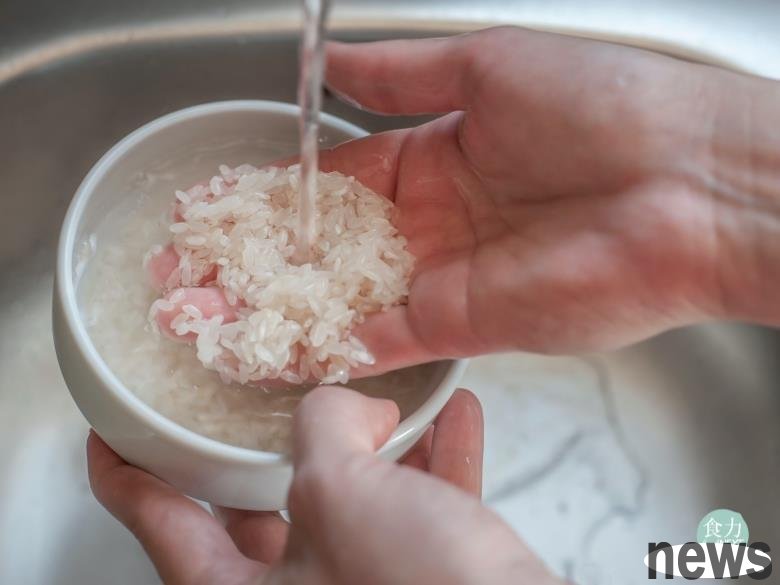 The food you should know about whether to wash rice before cooking is a problem with two groups of caregivers. Some even believe that washing rice and whether to wash rice affects the viscosity and hardness of the rice. In this regard, research proposed by foreign scholars breaks this myth. Although washing rice can remove dust and reduce the arsenic content, it cannot wash away the powder contained in the rice grains itself, nor can it affect the viscosity.
The food you should know about whether to wash rice before cooking is a problem with two groups of caregivers. Some even believe that washing rice and whether to wash rice affects the viscosity and hardness of the rice. In this regard, research proposed by foreign scholars breaks this myth. Although washing rice can remove dust and reduce the arsenic content, it cannot wash away the powder contained in the rice grains itself, nor can it affect the viscosity. Will you wash the rice before cooking the white rice? Some people think that the way of washing rice will affect the deliciousness of rice, and there are even reports that the white rice washing water produced by washing rice is because the powder of the rice grains is washed out during the washing process, but is this really the case? Foreign experts have conducted many researches on this to break the rumors about rice washing!
{9 Is the viscosity and softness of rice related to washing rice?Rice is an important staple food for Asians, and rice dishes are often found in European regions, such as Italian stew, Spanish seafood, or Greek rice dumplings made by Greeks wrapped with grape leaves, minced meat and spices. They are used to make dessert "rice pudding" in the UK. This shows that rice is one of the most important ingredients in human diets.
Despite so many different ways of cooking, whether to wash rice with clean water before simmering the rice has been different since ancient times. The types of grains, local food culture, and myths about health have affected people's washing rice. CNN reported on July 6, 2023 that some cooking experts have claimed that washing rice can reduce the rice powder content, and white rice washing water is the best evidence. In addition, if you want to cook rice dishes with distinct grains, you must wash the rice in advance. If you want a sticky Italian, Spanish seafood or rice pudding, you do not need to clean the rice grains.
In this regard, the research team of Queensland University in Australia has conducted many studies on the urban story of rice washing. First, researchers found that the water of rice washing becomes mixed because during the rice milling process, a straight-linked powder related to "sticity" will be produced on the surface of the rice grains; another study includes glutinous rice and medium-grain rice. The three types of jasmine rice were tested and divided into 3 types of jasmine rice, 3 times of jasmine rice, and 10 times of jasmine rice. They found that the cleaning process had no effect on viscosity and hardness at all. The type of grain is the real factor related to viscosity. The viscosity of glutinous rice is the strongest, and the viscosity of medium-grain rice and jasmine rice is poorer and has a harder texture.
The rice grains are not only covered with dust, but also arsenic and plastic particles!The report of "CNN" mentioned that cleaning rice grains is usually to wash away the mixed dust, gravel, rice grain fragments or cysts during the rice debris process. However, another study from Queensland University pointed out that as plastic products appear in the food supply chain in large quantities, plastic particles are also detected in the rice grains, regardless of Rice particles wrapped in plastic bags or paper bags have the same content of plastic particles. If it is precooked ready-to-eat rice, the plastic particles content is 4 times higher than that of raw rice. However, if the rice particles are washed in advance, some plastic particles can be washed away. Washing raw rice can reduce plastic particles by 20%, and ready-to-eat rice can reduce by about 40%.
Queen University of Canada and Henan University of Technology have also explored the importance of chemical substances left by rice grains and the importance of washing rice. Research at Queen's University found that crops absorb "arsenic" in the environment during their growth process. By pre-cleaning, 90% of arsenic can be removed, but at the same time, they also wash away health-friendly nutrients such as copper, iron, and tin. Research from Henan University of Technology shows that in addition to arsenic, rice grains may also contain other heavy metals such as penis and tins. If pre-cleaned, the content of these materials can be reduced by 7% to 20%.
Wash the rice and cannot remove the rice powder It will not affect the viscosityIn short, although washing rice can remove dust and reduce the arsenic content, it cannot wash away the powder contained in the rice grains, nor can it affect the viscosity, nor can it wash away the surface bacteria. However, it is not too worried, because high temperature will kill you during the cooking process. For most of the bacteria, it is necessary to pay special attention to how long the washed or cooked rice is stored at room temperature. The bacterial spores of Cactus may begin to grow and produce toxins, causing gastric diseases. Therefore, in addition to cleaning, you should also pay attention to the storage environment to avoid eating and damaging your stomach!